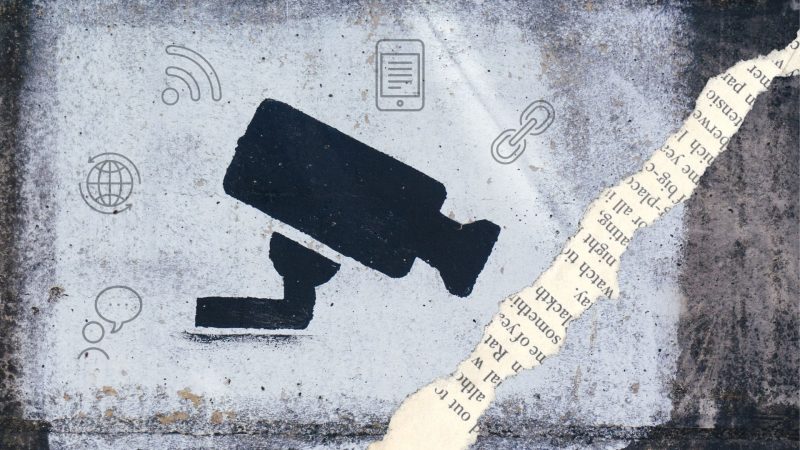
International and domestic condemnation of Greek government’s stance on surveillance of journalists



International and domestic press and media freedom advocacy organisations have condemned as a threat to press freedom the insistence of European governments, including Greece, of including the possibility of surveilling journalists for national security reasons, including using so-called spyware, in upcoming EU legislation.
During 2023, international and domestic press and media freedom organisations condemned European governments – including Greece – for insisting on allowing governments the possibility to legally monitor journalists in the new European Media Freedom Act – EMFA in the EU.
On July 4, 2023, the Journalists’ Union of Athens Daily Newspapers Association issued a statement arguing that the position of the European Council (the EU institution composed of representatives of national governments) may put journalists and their sources at risk, and that the vague invocation of ‘national security risks’ may render EU law unenforceable.
On 23 June, both the International Federation of Journalists and the (European Federation of Journalists had already adopted the same position.
“The International and European Federation of Journalists (IFJ-EFJ) strongly reject the position of the EU Council on the European Media Freedom Act (EMFA) on 21 June and denounce a blow to media freedom, arguing that such legislation would put journalists and their sources even more at risk.”,the International Federation of Journalists said in a statement, adding that exceptional surveillance of journalists “neglects the important case law of the Court of Justice of the European Union (CJEU), which makes it clear that the mere purpose of safeguarding national security cannot render EU law inapplicable and does not exempt Member States from their obligations to comply with the rule of law… We are disturbed about the dangerous loopholes in the Council’s position, which shows a disregard for media freedom principles. The national security exception in article 4 on the protection of sources and protection from surveillance technology is a blow to media freedom.”
According to a diplomatic document from the German working group in the European Council, the Greek government was among the six out of 27 that supported the above-mentioned addition, which effectively removes the protection of journalists. The other five were France (which drafted the addition), Germany, the Czech Republic, the Netherlands, Germany and Luxembourg.
“We are disturbed about the dangerous loopholes in the Council’s position, which shows a disregard for media freedom principles. The national security exception in article 4 on the protection of sources and protection from surveillance technology is a blow to media freedom. It would put journalists even more at risk and creates in addition a chilling effect on whistleblowers and other sources. We know too well how the defense of national security is misused to justify media freedom violations. This EMFA was supposed to generate trust. The Member States are generating mistrust,” reacted EFJ Director Renate Schroeder.
A new report by international and domestic media (Investigate Europe, Follow the Money, Disclose, Reporters United) published on 12 December 2023 revealed that the European governments of Greece, Cyprus, France, Italy, Malta, Finland and Sweden have maintained their position on the possibility of monitoring journalists through spyware software, such as Predator that has been used against targets (journalists, politicians, businessmen) in Greece and Pegasus, used against targets in Spain.
According to a document which comes from a meeting of the Permanent Representatives Council – France, Finland and Cyprus said they insist on maintaining the national security exception “without much flexibility”, while Greece, Sweden and Malta are on the same line “with some nuances”, according to the wording of the German diplomatic document describing the 22 November meeting. Italy adopted the toughest stance of all countries.
In an open letter, 17 European journalists’ and media associations have called for the controversial paragraph to be deleted.
“We are deeply shocked by the demands of these seven governments, which are flouting European legal standards of press freedom, as established by the case law of the European Court of Human Rights,” said EFJ President Maja Sever. “Inserting such an exception in a text that claims to promote media freedom in Europe is pure provocation. We call on the European Parliament and the European Commission to firmly reject this illiberal provision, which threatens not only the protection of journalistic sources, but also democracy.”
Under the rule of law, individual rights and freedom of the press are protected, and as such journalists have the right to freely and independently exercise their profession, free from censorship and influence.
Despite the guarantee of freedom of the press by Article 14 of the Constitution, in this case international and domestic organisations (IOJ, EOD, ESIEA) defending freedom of the press and the media have expressed concerns that the approach of European governments, including Greece, is endangering the freedom of the press, as well as the protection of journalists, whistleblowers and journalistic sources.
Bank Account number: 1100 0232 0016 560
IBAN: GR56 0140 1100 1100 0232 0016 560
BIC: CRBAGRAA
![]()
In a time where the very foundations of democracy are gradually being eroded by the rise of extreme nationalism, alt-right movements, the spread of disinformation and corporate capture, the efforts of organisations such as Vouliwatch are more relevant than ever.
We rely on the generosity of each and every one of you to continue with our efforts for more transparency and accounta
By financially supporting Vouliwatch you support our litigation strategy, our campaigns for transparency and accountability in the political system, the development of new civic tech tools, our research projects and last but not least our impartial and accurate